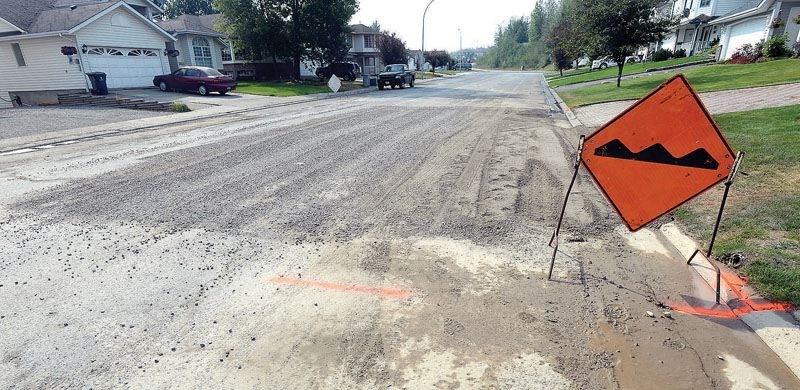The reason behind a hole in a College Heights watermain that left residents without water on Monday is still a mystery.
According to public works director Bill Gaal, the infrastructure is likely in the range of 30 years old.
"It's a relatively new system, so it's not a question of aging infrastructure," said Gaal. "The city of Prince George, like all municipalities in Canada, experience watermain and water service breaks. I don't think this is any worse or any better than any other year in the last 10 years."
Last week, a sinkhole opened up on Massey Drive, caused by a crack in a storm drain line. Water leaking from the drain eroded the ground under the asphalt until it collapsed, according to information released by the city at the time.
The total cost of fixing the hole hasn't been added up yet, said Gaal.
"There's still asphalt that has to be put down, curb and gutter that have to be relayed and I think we have to redo the sidewalk," he said.
The city is facing a roughly $20 million annual funding gap in its infrastructure, according to information presented to council members this summer.
But unlike water and sewer lines, which are funded through a dedicated line on residents' utility bills, storm water infrastructure - which was responsible for the sinkhole - isn't keeping up with the necessary demand.
In 2012, council approved a five-year plan that raised sewer and water utility rates through 2017 to be able to reach $7.7 million and $9.8 million, respectively, in capital investment.
"Our council's been very progressive on that," said Gaal.
Storm water upkeep comes out of the general tax levy, with $0.95 out of every $100 in residential property tax going towards storm water infrastructure.
A plan to introduce a dedicated storm water utility to reach a projected five-year average investment of $3.85 million has stalled. Originally approved in late 2012 for a 2015 start, a draft bylaw outlining how exactly residents would be charged has been slow in coming.
Council's finance and audit committee sent the plan back to the drawing board in May with an eye toward coming up with a simpler rate structure.



